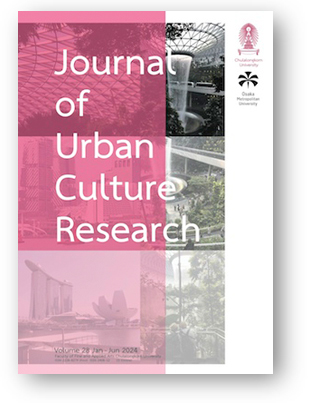The Development of Sustainability for Tonkori Performance of the Ainu People in Northern Japan
DOI:
https://doi.org/10.14456/jucr.2024.5Keywords:
Sustainability;Tonkori; Ainu People; JapanAbstract
The Ainu are the indigenous people of the northern region of Japan which is adjacent to the Russian border. An important Ainu musical instrument is the Tonkori, a wooden 5-string instrument played for entertainment purposes. The current Tonkori music is considered to be introduced by Sakhalin Ainu, one of the sub-ethnic groups of Ainu who migrated to Hokkaido prefecture after WWII. An effort to reduce inequality as well as to make their culture sustainable among the Ainu people is the followings: (1) Promoting the establishment of university research centers; (2) organizing workshops and musical performances in museums and recital halls; (3) offering short but intensive 3-year Tonkori courses for classes of four students each; (4) endorsing the establishment of a national registry of ancient musical instruments; (5) endorsing the establishment of Ainu culture study programs in secondary schools. The research findings reveal that the Ainu people based their sustainable cultural preservation efforts on the two principles of raising social awareness about Tonkori music and enhancing mutual cooperation for the related tasks.
Downloads
Published
Versions
- 2024-07-07 (2)
- 2024-06-24 (1)
How to Cite
Issue
Section
License

This work is licensed under a Creative Commons Attribution-NonCommercial-NoDerivatives 4.0 International License.
Authors authorize the JUCR to publish their materials both in print and online while retaining their full individual copyright. The copyright of JUCR volumes is retained by Chulalongkorn University.
The views and opinions expressed herein are those of the individual author(s) and do not necessarily reflect the policies or opinions of the Journal (JUCR), it editors and staff, Chulalongkorn University, or Osaka Metropolitan University.







